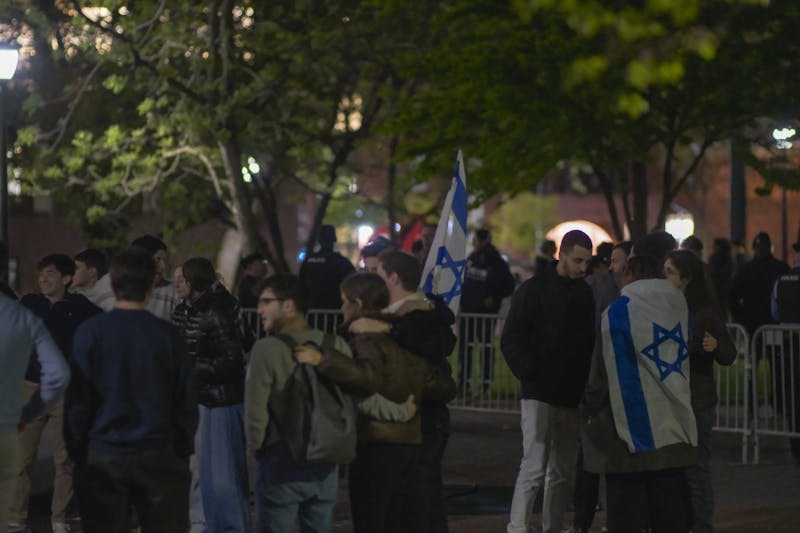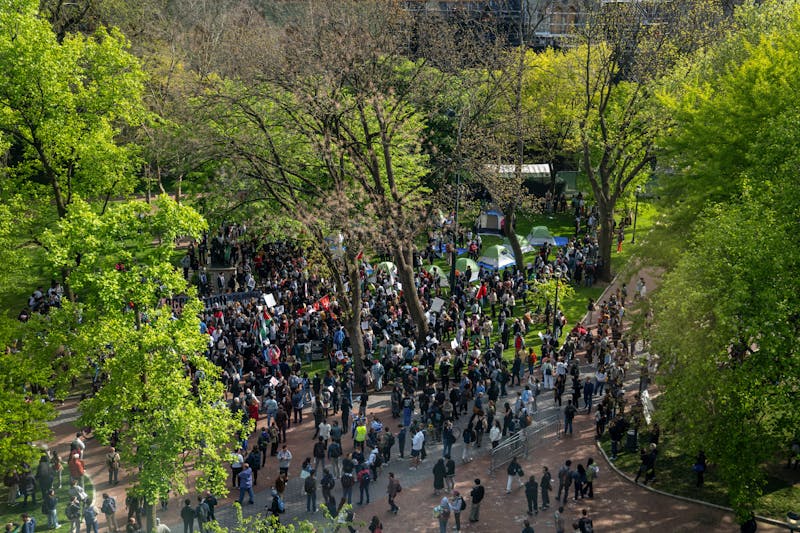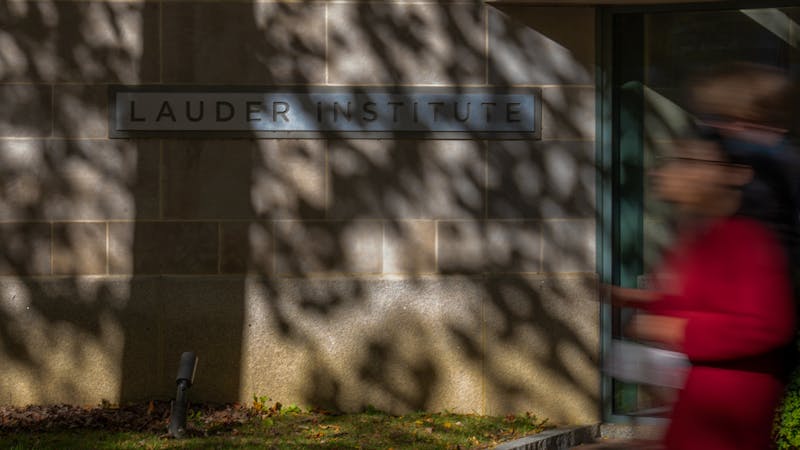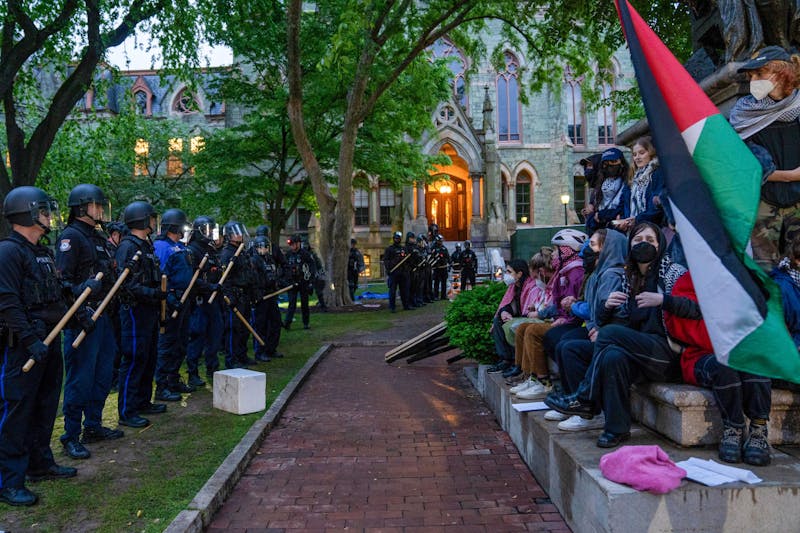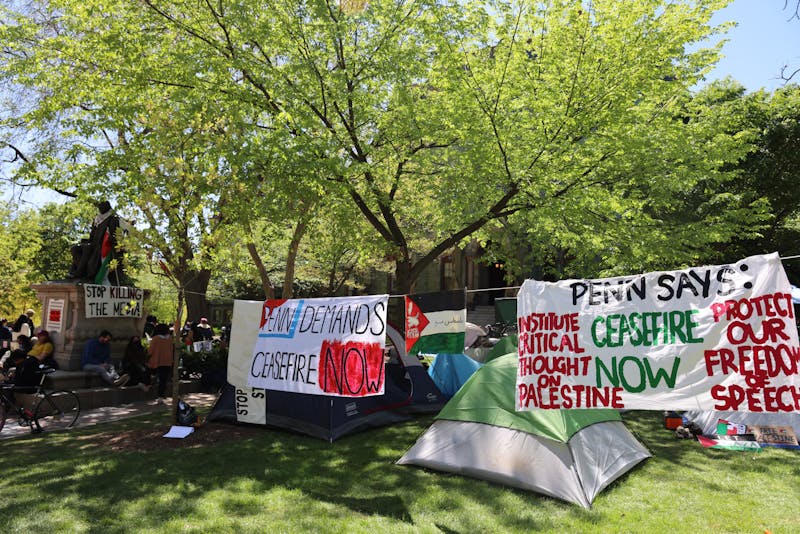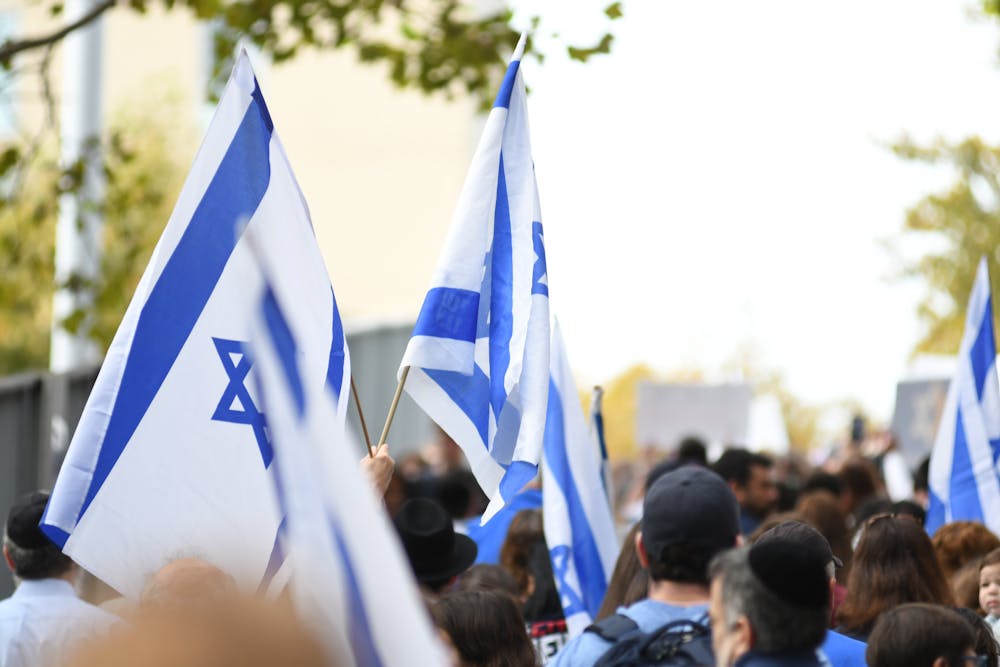
Members of Penn’s Jewish community have expressed a variety of opinions about the University’s response to recent protests and the ongoing activism on campus.
The Daily Pennsylvanian spoke with several Jewish students and faculty, including leaders of Penn Hillel, about their reactions to the Gaza Solidarity Encampment and subsequent protests on campus. Some students expressed concern for their safety, while others emphasized the need for dialogue moving forward.
Wharton and Engineering junior and former Penn Israel Public Affairs Committee (PIPAC) co-president Noah Rubin expressed his disappointment with the University’s response to the attempted occupation of Fisher-Bennett Hall on May 17.
“It is incredibly disappointing that Penn has emboldened people to think that they can actually take over a building in the name of killing Jews,” Rubin told the DP.
Pro-Palestinian activists attempted to occupy Fisher-Bennett at 34th and Walnut streets and were met with an immediate response from Penn and Philadelphia Police officers, who arrested nineteen individuals — seven of whom are Penn students.
Rubin also highlighted the threat that he feels the protesters’ actions and rhetoric pose and added that he feels the encampment was “a very serious threat to the campus community.”
“These people have been praising Hamas for six months now,” he said. “And so it’s clear that they have been violent in the past.”
In February, Rubin testified at a meeting titled “Roundtable With Jewish Students Impacted by Antisemitism” hosted by the United States House Committee on Education and the Workforce.
College sophomore Jake Zubkoff, a member of Penn Hillel’s Executive Board, emphasized the need for empathy and understanding. He acknowledged the pain felt by both Palestinian and Jewish students, stressing the importance of building relationships across different communities.
“Our campus is living through a crisis of empathy,” Zubkoff told the DP. “It is not hard to see the pain and anger that Palestinian friends have felt watching the sheer devastation wrought by Israel’s war in Gaza and ... the unwillingness of University administration to recognize or take action against ongoing marginalization on campus.”
He added that the Jewish community’s ongoing distress after the Oct. 7, 2023 attack on Israel has been heightened, as “credible instances of antisemitism have gone un-listened to and un-empathized with by our peers.”
Zubkoff “feel[s] strongly” that the relationships he has built and deepened with Arab and Muslim friends in recent months have allowed him to further recognize the importance of supportive gestures.
He added that he has started to “look past some of the views, slogans, and Instagram stories that [he] ha[s] found … harmful … to build relationships with people who are similarly pained and angry, albeit in a different way, who also want to see their communities better supported.”
College junior Maya Harpaz, the incoming co-president of Penn Hillel and an undergraduate representative for the University Task Force on Antisemitism, also stressed the importance of dialogue.
Harpaz told the DP that she recently attended the White House celebration for Jewish American Heritage Month, where President Biden and other administration officials emphasized a commitment to “the safety [of] the Jewish people [and] the security of Israel.”
She called the event an environment to "voice concerns and highlight Jewish pride," and said that "it is sad … but still very necessary and important" to have to do both.
Harpaz urged continued support for Jewish voices on campus and added that she appreciates the administration’s acknowledgment of “the concerns voiced by Jewish students."
Perelman School of Medicine professor Benjamin Abella reflected on the current circumstances in the context of the larger University community.
“We’re a community,” he said. “We’re a university. We have different opinions, we have different backgrounds, and we have different contexts. I think we have a lot of work to do.”
Abella added that this is “still a time of great fear for the Jewish faculty and students.”
The Daily Pennsylvanian is an independent, student-run newspaper. Please consider making a donation to support the coverage that shapes the University. Your generosity ensures a future of strong journalism at Penn.
Donate




